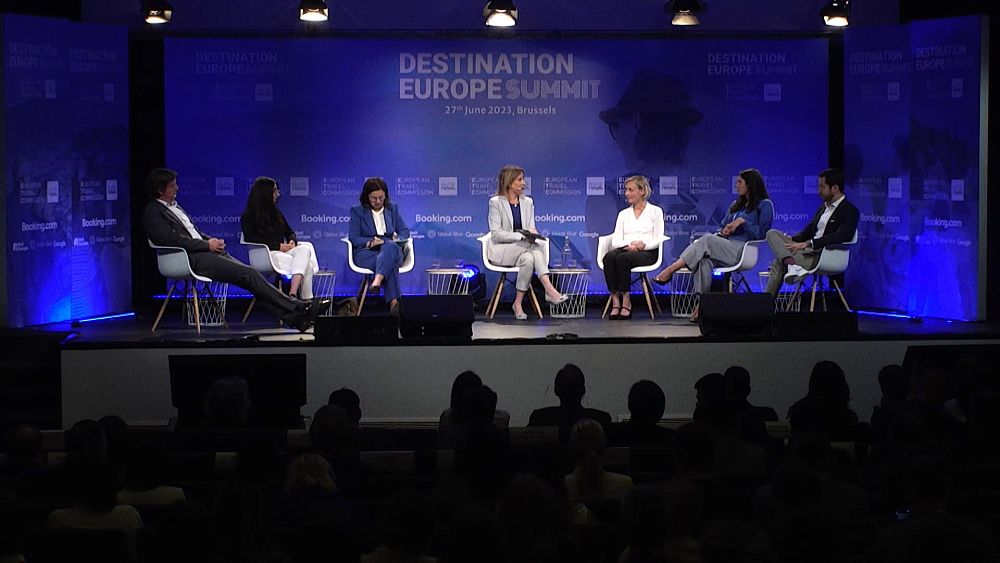
The European tourism sector looks set for another bumper year, the inaugural Destination Europe Summit in Brussels told.
The summit brings together tourism industry leaders and politicians from across Europe and beyond.
Bookings for this summer season are up again as the bounce back from Covid confinement continues. And while the war in Ukraine continues to cast a shadow over the continent, its impact on the travel sector looks to be contained.
“Obviously a tremendous recovery,” said Glenn Fogel, CEO of Booking.com. “And we’re all pleased with what has happened. We’re not there yet. Inbound from Asia is not there yet, but one of the things in our industry is every day something is happening somewhere that’s an issue that we got to deal with. And that’s just the nature of the business.”
“We are the first global destination for tourism in the world,” said Thierry Breton, European Commissioner for the Internal Market. “But yes, we have this war, this war is definitely changing a lot of things. When Vladimir Putin decided to launch this terrible aggression against Ukraine, we had to, we had to react and we did.”
Making it easier to get to Europe
Making it easier for people to get to Europe was one of the key themes at this inaugural summit. Improving connectivity, addressing labour shortages and faster implementation of the EU’s new digital visa systems to make travel more seamless were key demands from experts.
“We have to be mindful that countries across the world, they are investing a lot of money in infrastructure, they are simplifying the procedures for visas,” said Jorge Casal, Senior VP for New Markets & Public Affairs at Global Blue. “Clearly the more easy, seamless the process is for someone to visit a country it’s better. But to really achieve the full recovery of the tourism industry I think all these kinds of measures are to be put in place asap.”
“If we do not tackle these situations, that has to do with air connectivity, with how seamless our experience, how seamless our booking is of any of our experiences in Europe, then we will never be competitive and we will lose to other destinations,” said Luís Araújo, the former president of Turismo de Portugal. “We will lose to America, will lose to Asia, we will lose to Africa, to South America.”
Building back sustainably
In addition to the post-pandemic recovery, another key theme uppermost on people’s minds was how to build back more sustainably – something consumers also increasingly appear to want.
“So what we’re seeing is a little bit of an environmental awakening from travellers,” said Feria Kazemi, Industry Relations Manager for EMEA Travel at Google. “Globally, what we’ve seen over the last 12 months compared to the 12 months prior is that searches, web searches for sustainable travel have increased by 36 percent year over year.”
Better cross-border rail as an alternative to flying is increasingly seen as a way to help countries improve connectivity in a sustainable way.
“I see definitely a huge chance for night trains in Europe,” said Björn Bender, President & CEO at Rail Europe. “Specifically when we are talking about, let’s say, relations between 800 and up to 1500 kilometres. And this will also give us a new possibility for how we travel in Europe.”
Industry experts also discussed how the EU’s green transition will impact the sector. Can we go green on this continent and reach ambitious goals and stay competitive?
“We have to,” said Commissioner Breton. “We have to. There are no options. No options. But also, and I keep saying this very often, it’s not while restricting our movement or our consumption that we will get green. But it is thanks to innovation, thanks to technology, thanks to science that we will do it.”
